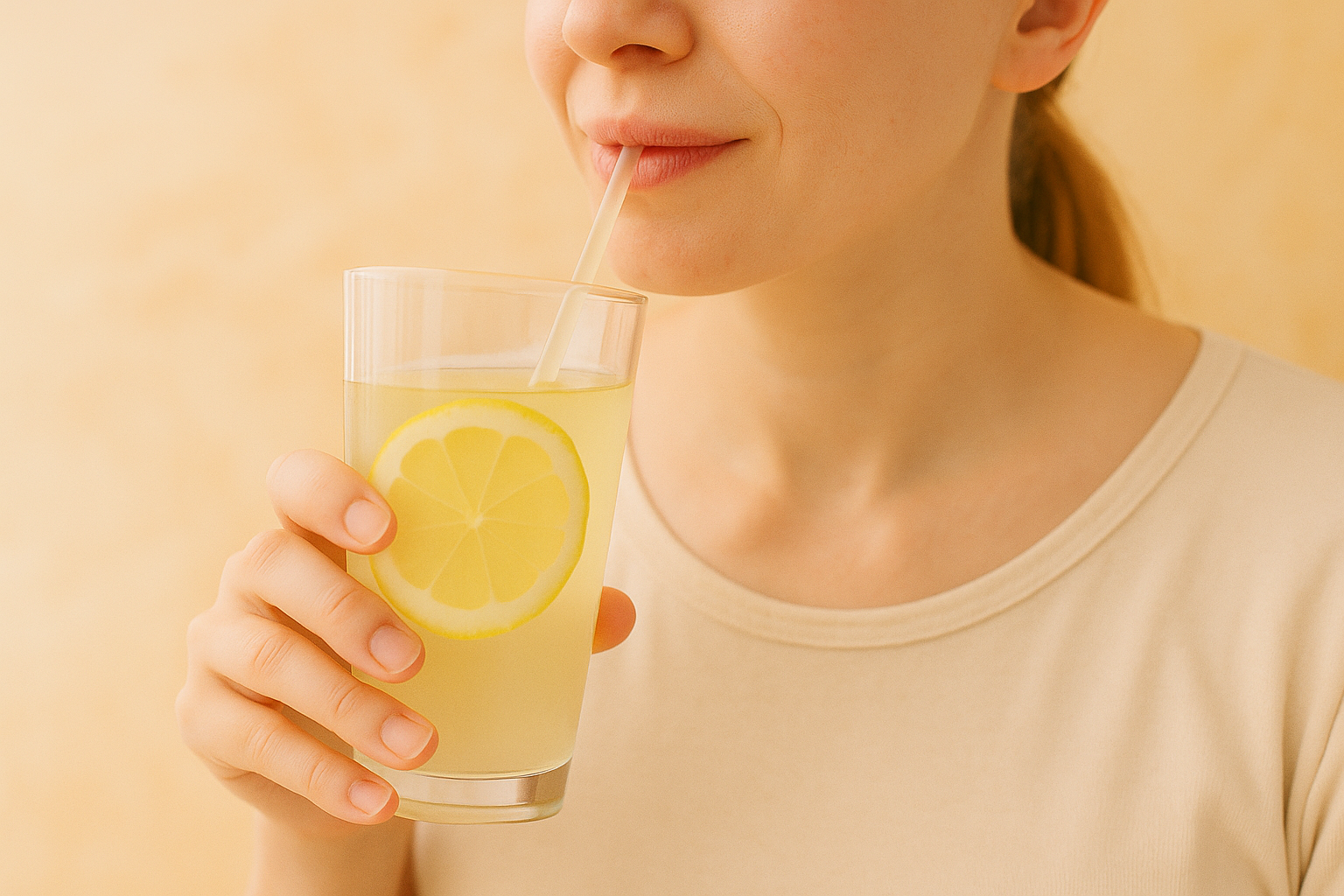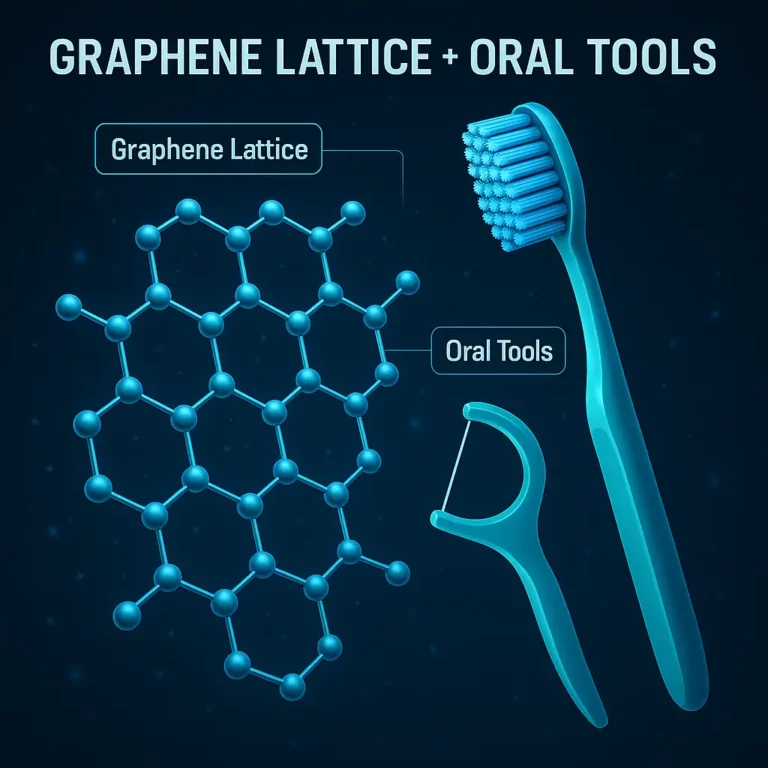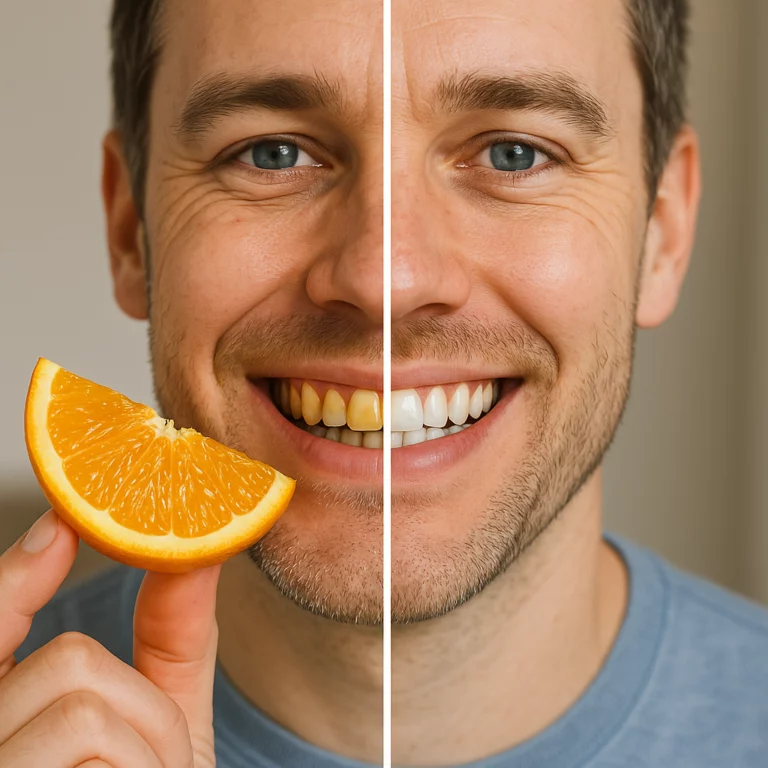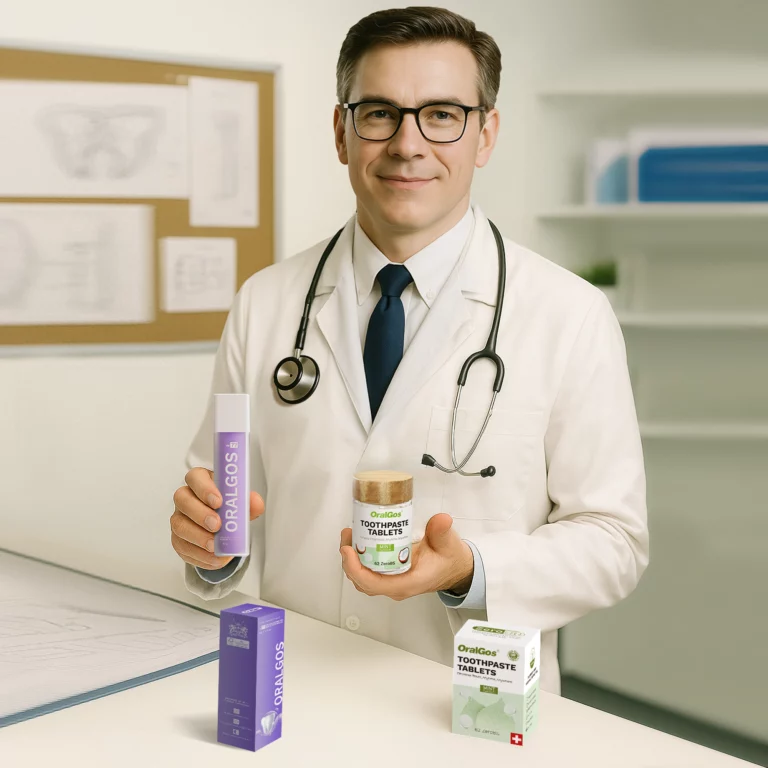Natural remedies have gained popularity in recent years, and lemon is often promoted as a natural teeth whitener and detoxifier. From lemon-infused water to homemade lemon-and-baking-soda pastes, many consumers are embracing citrus-based alternatives to achieve a brighter smile. However, for professionals in the oral-care industry, it is essential to assess whether these trends truly support oral health, or quietly undermine it. So, is lemon safe for dental enamel? The short answer: not really. Let’s take a closer look at the science and what oral-care professionals should communicate to patients and customers.
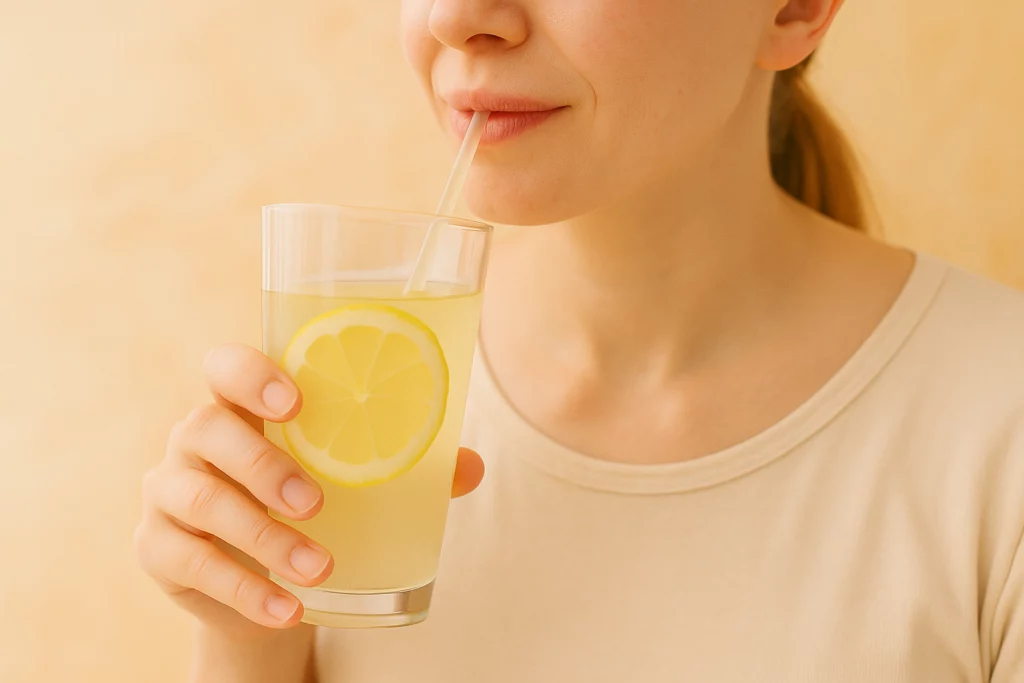
The Real Risk: Acid and Enamel Erosion
Lemon juice is highly acidic, with a pH as low as 2.0. While its acidity makes it effective in breaking down surface stains, it also erodes enamel—the tooth’s outermost protective layer. Frequent exposure can result in irreversible enamel loss, leading to tooth sensitivity, yellowing, and structural weakness.
Unlike sugar-related decay caused by bacteria, acid erosion occurs directly through chemical processes. Early signs include transparent tooth edges, cupping on molars, and smooth, glassy surfaces on enamel.
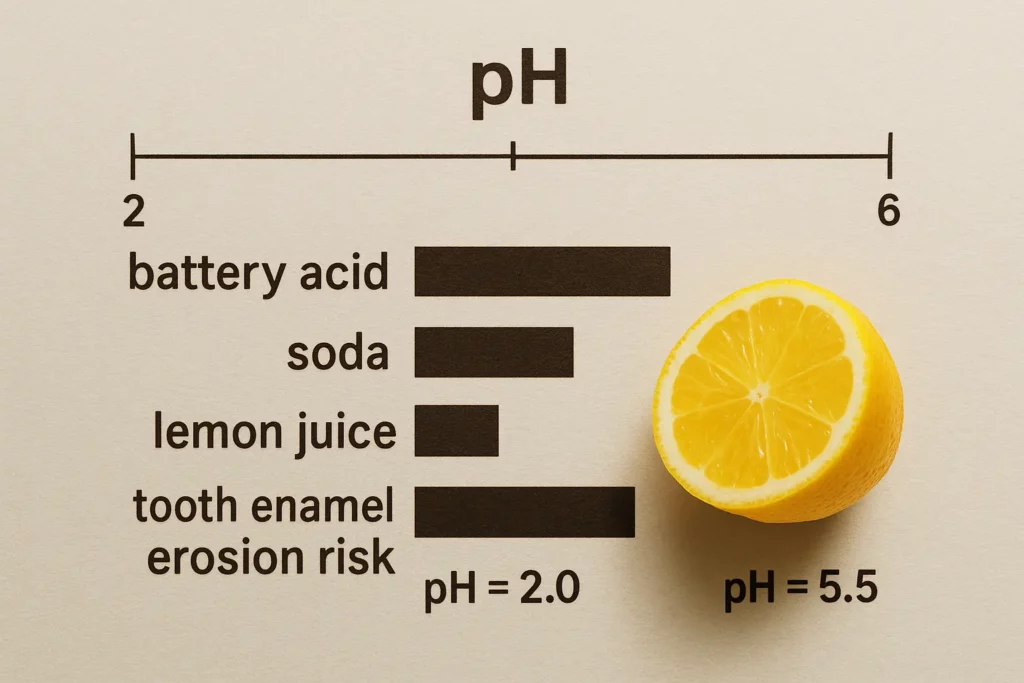
Does Drinking Lemon Water Whiten Teeth?
Although lemon water is commonly believed to cleanse the body and whiten teeth, there is no evidence to support this as a safe dental practice. Regularly sipping lemon water exposes enamel to prolonged acid attacks, making teeth more vulnerable to staining, not less.
Professionals should recommend drinking lemon water all at once, using a straw, and rinsing the mouth with water afterward to reduce contact with enamel.
Does Rubbing Lemon on Teeth Make Them Whiter?
Social media often encourages rubbing lemon slices directly onto teeth for quick whitening. While a temporary brightening effect may occur due to surface dehydration or stain removal, the cost is high. This method delivers unbuffered acid directly to enamel, leading to erosion and long-term sensitivity.
Is It Safe to Brush with Lemon Juice?
Some DIY oral-care trends involve brushing with a mix of lemon juice and baking soda. This combination is especially damaging. Lemon juice demineralizes enamel, while baking soda scrubs the softened surface away. This practice accelerates enamel wear and dramatically increases the risk of permanent sensitivity.
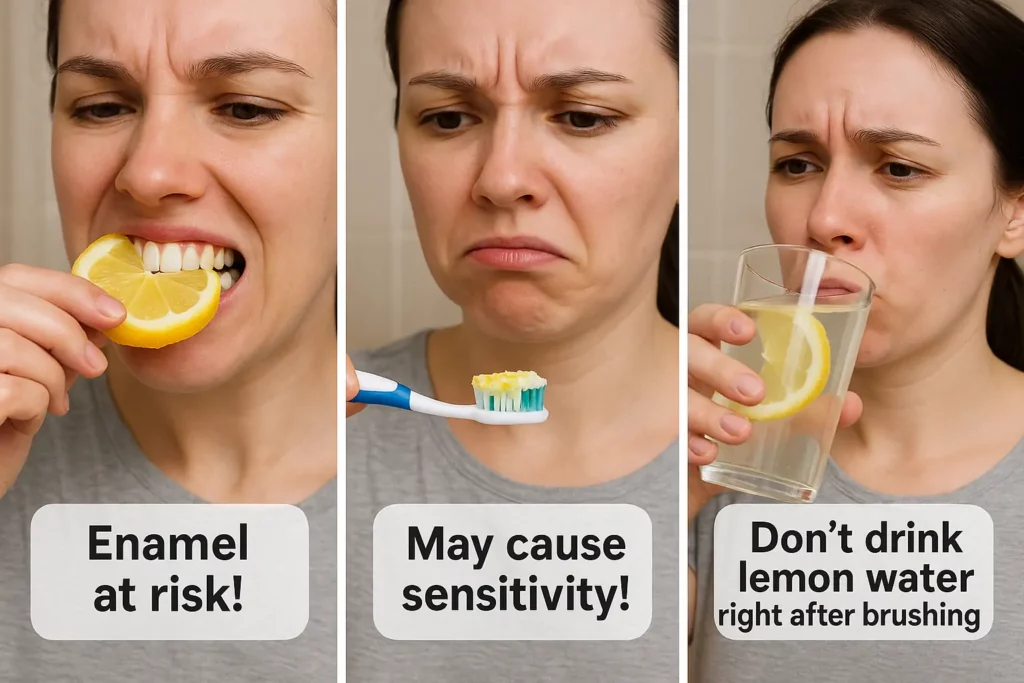
Does Lemon Offer Any Real Dental Benefits?
Lemon is rich in vitamin C, which is essential for general health and gum tissue. However, applying lemon directly to the teeth offers no proven benefits and carries significant risks. The damage from its acidity far outweighs any potential nutritional gains.
Can Lemon Reverse Cavities?
No. Lemon cannot regenerate or restore lost enamel. Tooth decay and demineralization require remineralizing agents like fluoride or nano-hydroxyapatite. These substances help rebuild enamel and prevent cavities—something lemon juice cannot do.
Does Lemon Help Eliminate Bad Breath?
Lemon’s strong scent may temporarily mask bad breath, but its acidity can disrupt the mouth’s natural pH balance. This may promote bacterial growth, worsening halitosis over time. Mechanical plaque removal, tongue scraping, and antibacterial mouth rinses remain the best options for addressing bad breath.
How Can You Whiten Teeth Quickly and Safely?
Patients seeking fast, safe whitening results have far better options than lemon:
- Nano-Hydroxyapatite Toothpaste with Baking Soda: This duo gently polishes teeth while strengthening enamel. It’s a safe and effective daily solution.
- Enzyme-Based Whitening Products: These target protein-based stains without harsh chemicals or abrasives.
- Professional Whitening Treatments: Supervised treatments using controlled levels of peroxide provide visible results without damaging enamel.
Safer Whitening Alternatives to Recommend
1. OralGos ZeroBS Toothpaste Tablets Mint Flavor
These eco-conscious toothpaste tablets offer a gentle yet effective approach to oral care. They’re free of harsh acids, maintain a balanced pH, and contain stain-fighting ingredients. Their compact design is ideal for travel and appeals to eco-minded consumers.
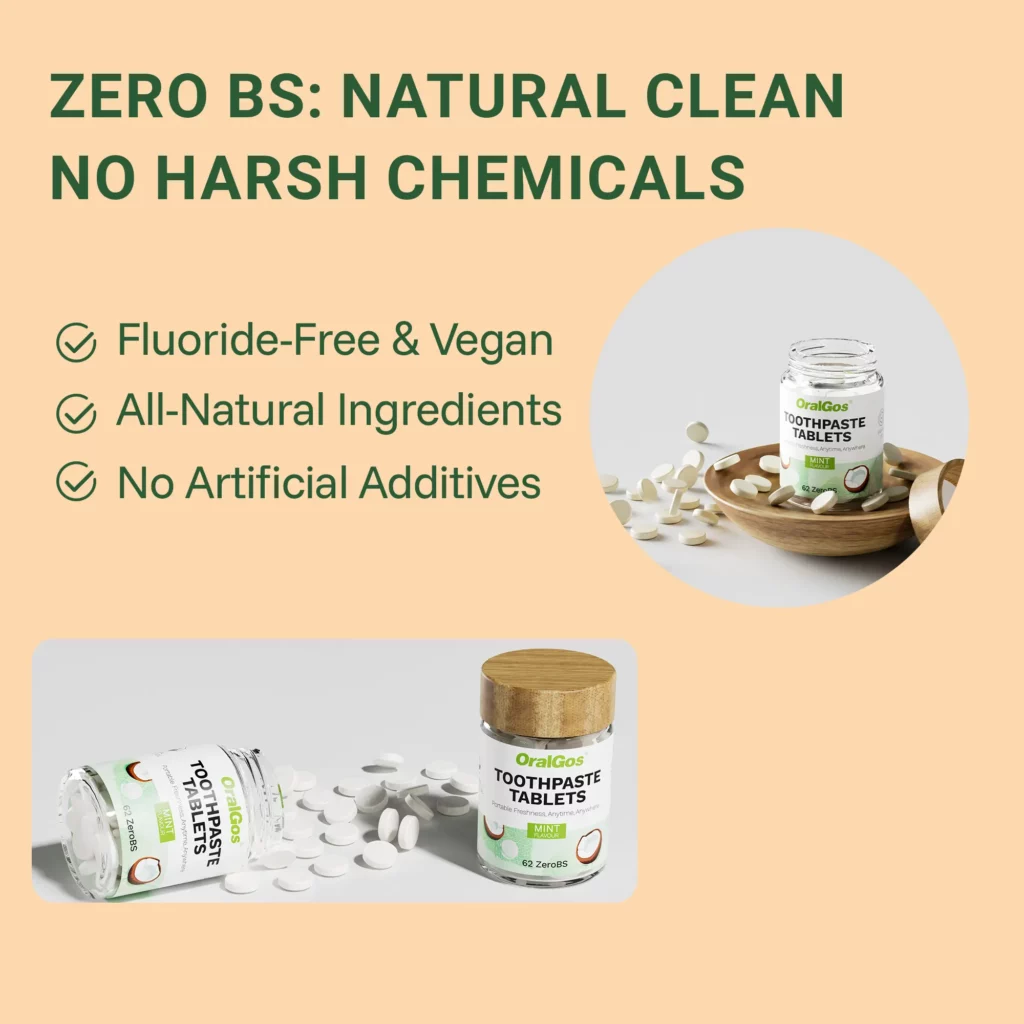
2. OralGos Fluoride Toothpaste
Still considered the gold standard in cavity prevention, fluoride strengthens enamel and supports remineralization. Many formulations also include whitening agents that lift surface stains without harming the tooth surface.

3. Baking Soda-Based Toothpaste
A long-standing whitening aid, baking soda offers mild abrasivity and natural deodorizing effects. When used moderately, it can safely remove stains and neutralize acids.
Final Thoughts for the Oral-Care Industry
Lemon’s popularity as a natural health aid doesn’t necessarily translate into dental benefits. Its high acidity poses a real threat to enamel, especially when misused in whitening routines. As professionals and product developers in the oral-care sector, educating consumers on these risks is vital.
Offering clinically supported whitening alternatives—combined with educational content—positions your brand as both trustworthy and forward-thinking. From fluoride to nano-hydroxyapatite and beyond, enamel-safe formulations should be prioritized to meet consumer demands without compromising long-term oral health.
By focusing on evidence-based practices and transparent communication, you can help consumers make better choices and ensure your brand stands out in a crowded market.

